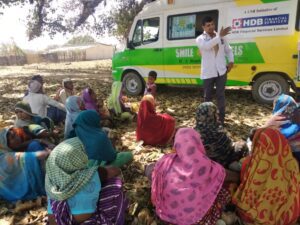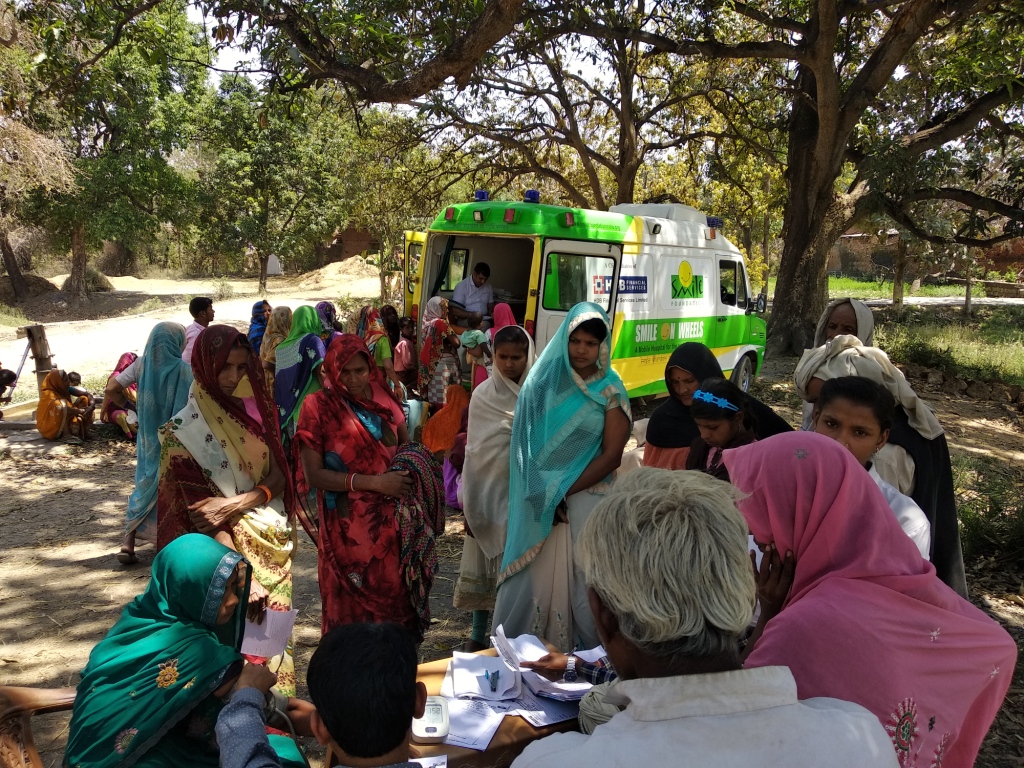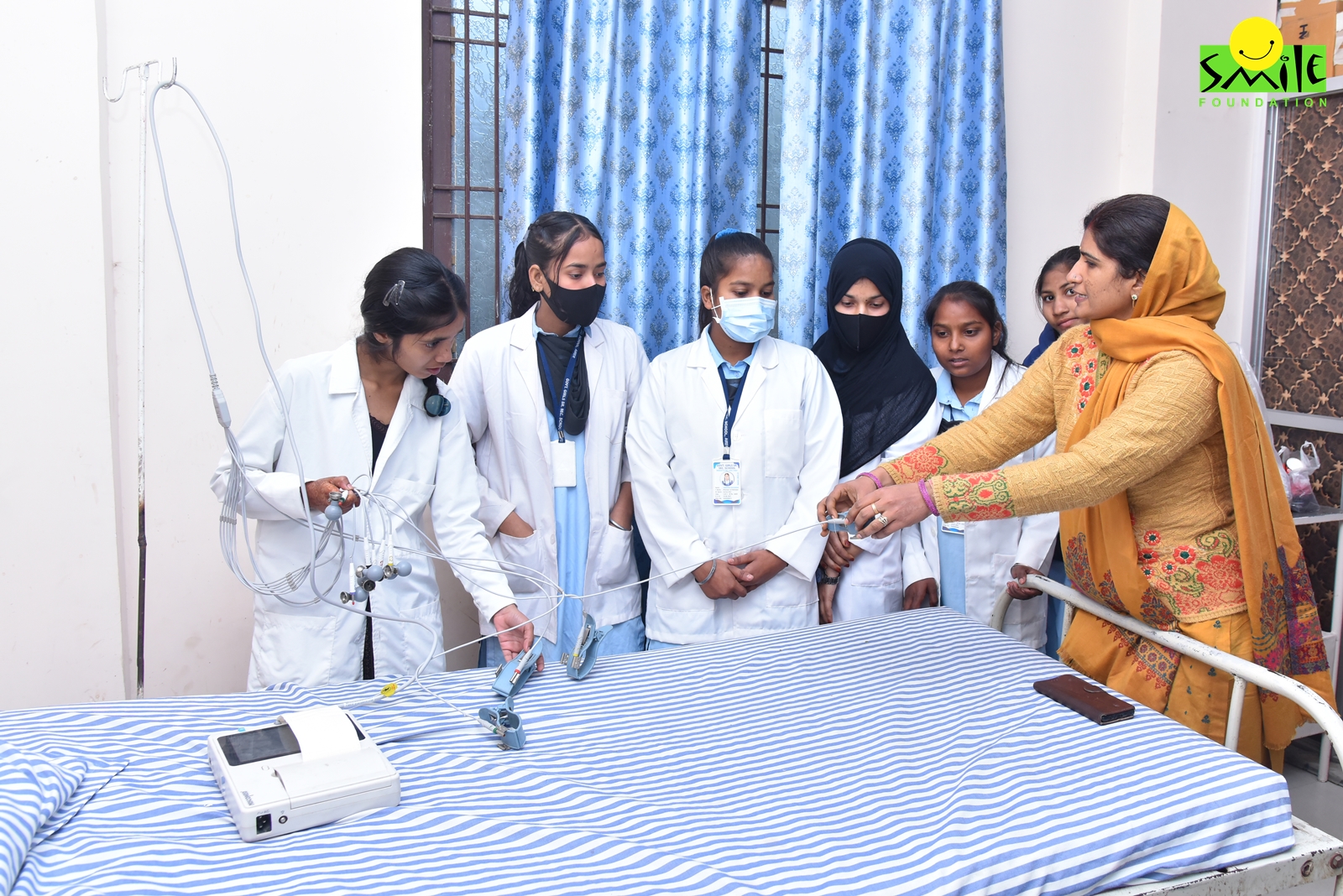Smile on Wheels, an initiative of Smile Foundation, provides its health-care services in urban slums and rural areas in India. Cherui and Markudi village of Sonbhadra and Robertsgang districts of Uttar Pradesh which are 27 and 30 Km away from the district headquarters in Robertsgang are two such places. The villages are situated in the hilly terrains with no public transport available in the villages to connect villagers to the cities. In case of health emergencies, people have to depend on personal transports which also are rarely available. Along with transport, poor mobile networks hamper their connectivity with the rest of the world. To access any medical facilities from community healthcare or public healthcare centres, they travel as far as 40 km to Robetrsganj even in times of utmost emergency. The state presently faces a shortage of 3,621 doctors for its Public Health Centers that also lack basic infrastructures like electricity, water supply as well as motor-able roads to reach them.
When Smile Foundation’s healthcare team first intervened, they discovered that due to problems of illiteracy and lack of awareness, people had limited or no knowledge of even the most health-related necessities such as nutrition, immunization, family planning and more. Most of the children between the ages group of 4-8 are undernourished and women were found to be anemic. Water which is a fundamental human need is also scarce. A person requires at least 20 to 50 liters of clean, safe water a day for drinking, cooking, and cleaning but in a sad reality, these people are struggling to get safe drinking water and are depended upon ponds and well, most of which are contaminated due to overuse.

The mobile medical unit, Smile on Wheels, provides primary health care services at door-step and organizes awareness driven activities in the community to sensitize them on healthcare. The unit is equipped with a doctor, an auxiliary nurse midwifery(ANM) specialist, a pharmacist, a community mobilizer and a project coordinator. The ANM with the support of local accredited social health activists (ASHA) sensitizes women on cleanliness, immunization, sanitation, and family planning. Various IEC activities in the community and schools are conducted in order to provide sensitization on nutrition, sanitation, etc.
Lack of awareness about menopause and EED leads to home deliveries which in case of complications lead to maternal or infant mortality or both. Women are not aware of the benefits of institutional delivery. Lack of transportation and communication plays a major role in all this. Due to poor network coverage, people cannot even avail services of ambulance services provided by 108 ambulance services. Hence, ground workers of Smile on Wheels work tirelessly to help these women access to institutional delivery by providing much-needed awareness to understand and take care of their own bodies as well as of their children.
For its doorstep health services, Smile on Wheels is appreciated by the community as they do not need to go very far to avail healthcare services. This unique mobile hospital program is addressing problems of mobility, accessibility, and availability of primary healthcare with a special focus on children and women in the rural remote area.









